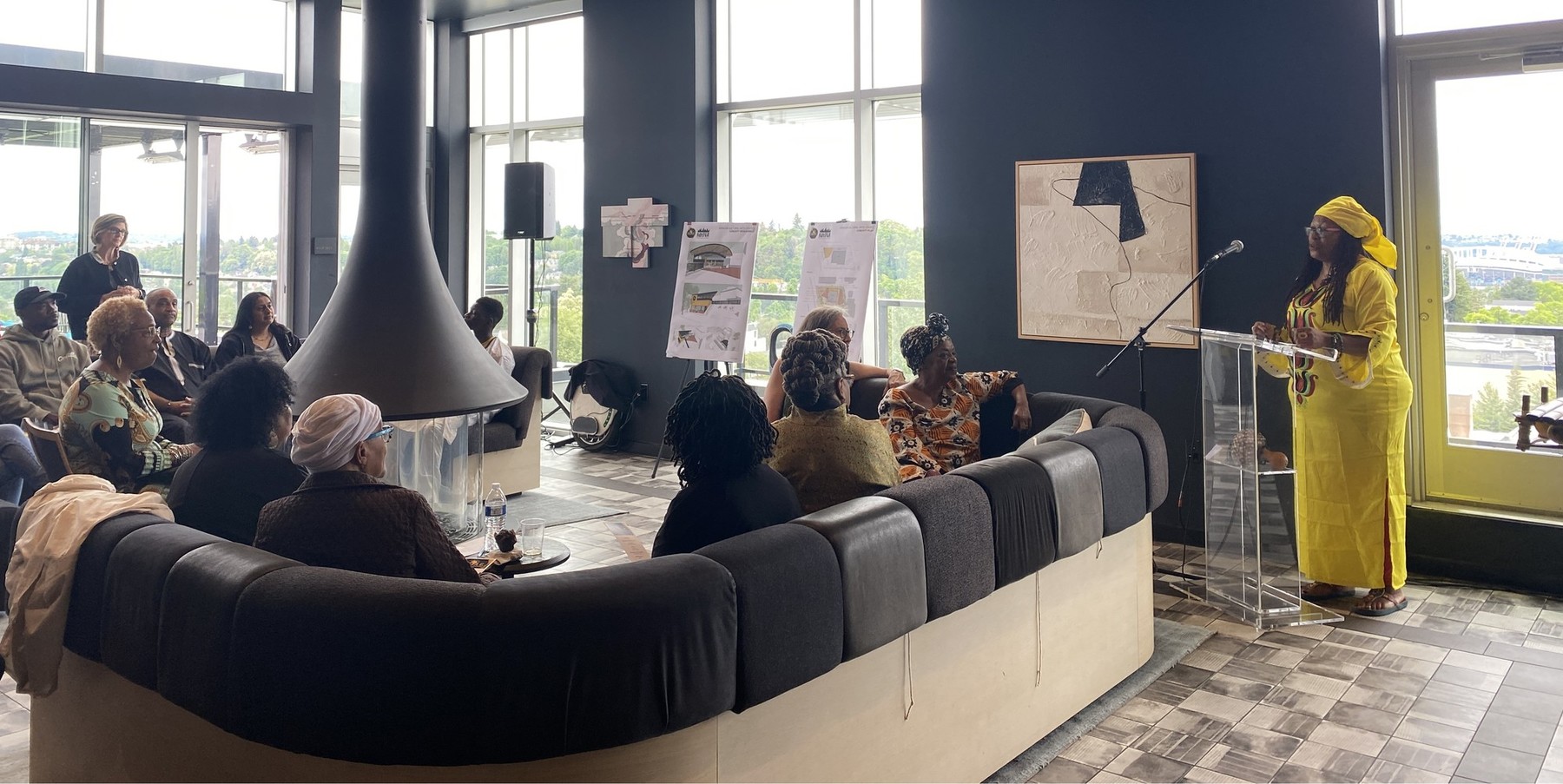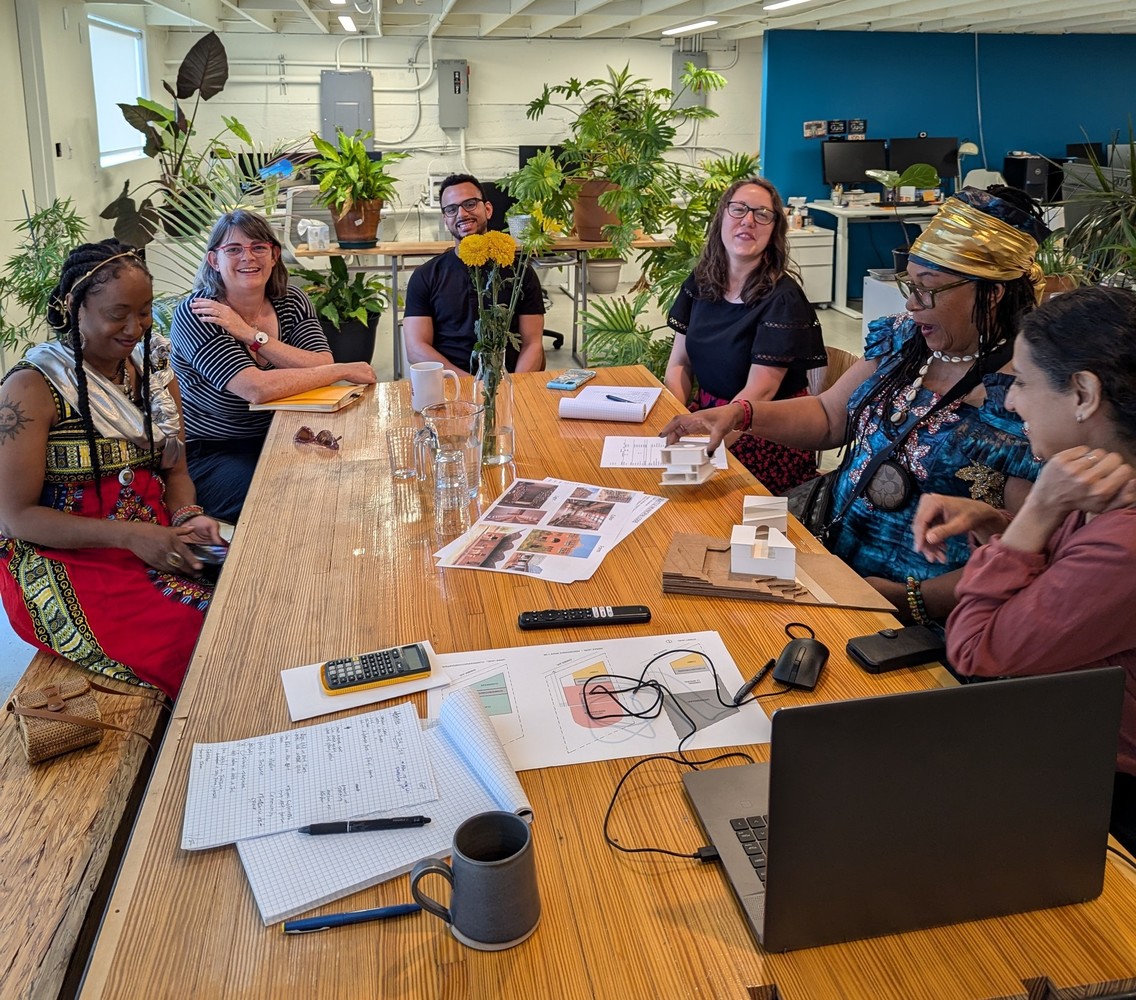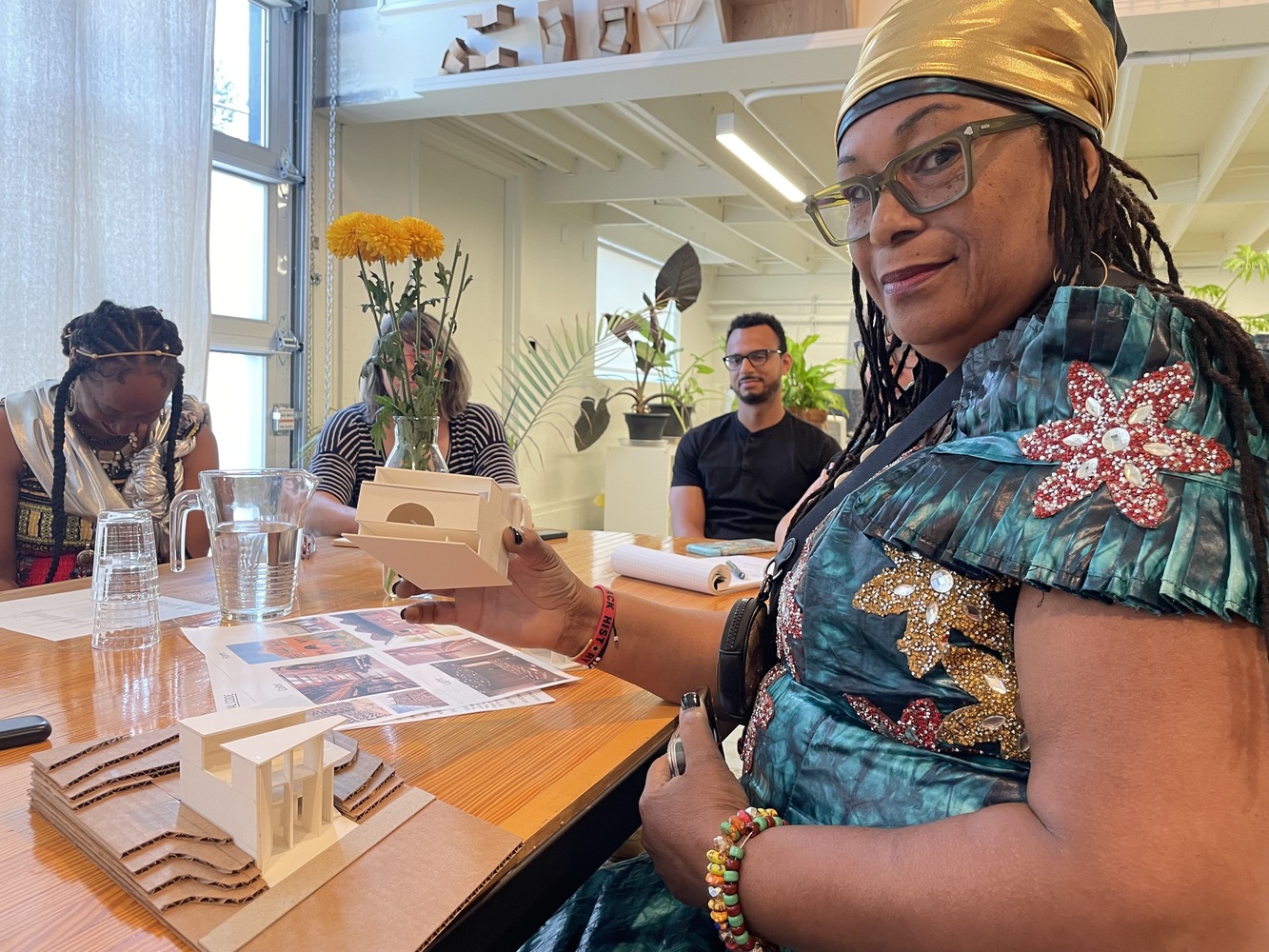The Impact of Seattle’s Equitable Development Initiative: ADEFUA Center
In our continued highlighting of the impact of the Equitable Development Initiative, we wanted to share our work with the ADEFUA Cultural Education Workshop, which underscores the value of EDI’s seed funding. Our goal is to encourage the City of Seattle to keep EDI and similar initiatives in the budget, by sharing the direct community impacts of the investment. We hope you’ll join us in this effort.

We first met Afua Kouyaté at a meeting of community members interested in supporting the development of the Brighton Neighborhood in South Seattle and learned about her impressive non-profit, the ADEFUA Cultural Education Workshop. Afua has been running ADEFUA for 40 years out of her family home on Rainier Ave. The organization provides access to African arts, dance, music, rites of passage for young women, and trips to Africa with elders from the community. Afua is also involved as a board member or community advisor with many important arts organizations in the city including 4Culture, the South East Seattle Rotary Club, The Columbia and Hillman City Cultural District, Cultural Space Agency, and the Rainer Valley Creative District.
Despite its great success, Afua’s organization has never had a permanent home. She has been running community-based programs for 40 years out of the ADEFUA Center, but due to the lack of space, many programs take place in rented spaces, schools, and community centers. Afua has had a vision for over 20 years to create the African Cultural Arts Center (ACAC), a facility that is equipped to house as many of her programs under one roof as possible.
When Afua reached out to us, she was connected to the program at EDI, but had not received any funding yet. ADEFUA’s programs have a history of receiving city funding, and are well known for providing high quality, important programming. With the goal of building a permanent facility, she reached out to EDI and they helped her understand what she needed to do start the process. Afua shared:
“Working with Micheal Blumson at EDI was a breath of fresh air for me, because he helped me understand that we needed to articulate our story differently than we had been. But everyone knew who we were already. We were a known and trusted entity”.
We know from experience that a small amount of funding at the right time can start a project on the path to success. This is where EDI’s willingness to fund at the beginning of the project is so crucial. Often granting organizations want to be the “last in”, while many EDI funds are designed to launch capital projects, recognizing that the organizations themselves are solid and that a facility is the next logical step for their growth and success. ADEFUA’s EDI grant was crucial to taking her project from imagination to realistic vision.
This is where our team came in. With a design team identified, she was finally able to get a grant to start working on feasibility and pre-design.

She was able to get the basic site documentation accomplished, getting a survey, arborist report and a geotechnical report. We were able to do a code and zoning analysis to understand what was possible on the site. We were able to help her host a community event to share the project and develop shared goals. All this work resulted in a feasibility study, a design vision, and a project budget that has put her in a much better position than she was before, and the funding has enabled her to hire a development consultant to help raise money. Afua has a clear vision, a plan for fundraising, and a realistic project schedule.
Crucially, an EDI grant also demonstrates a partnership with and support from the City of Seattle. Future applications for funding from King County and the State of Washington are all made much stronger by this show of faith and investment. This amplifies the power of the relatively modest initial EDI grant by allowing her to apply for significantly larger public grants with a much stronger proposal. She is building the team she needs around her to accomplish this project and has moved from the dreaming stage to the planning stage.
We believe that this is exactly the result that EDI was designed to have—helping a great, successful non-profit with a long track record grow into a permanent neighborhood asset. At its core, EDI is designed to help mitigate displacement. Investing in Black-owned organizations that have already invested so much in the community over the years is the right way to do that.

See more of our project with ADEFUA here.